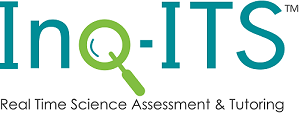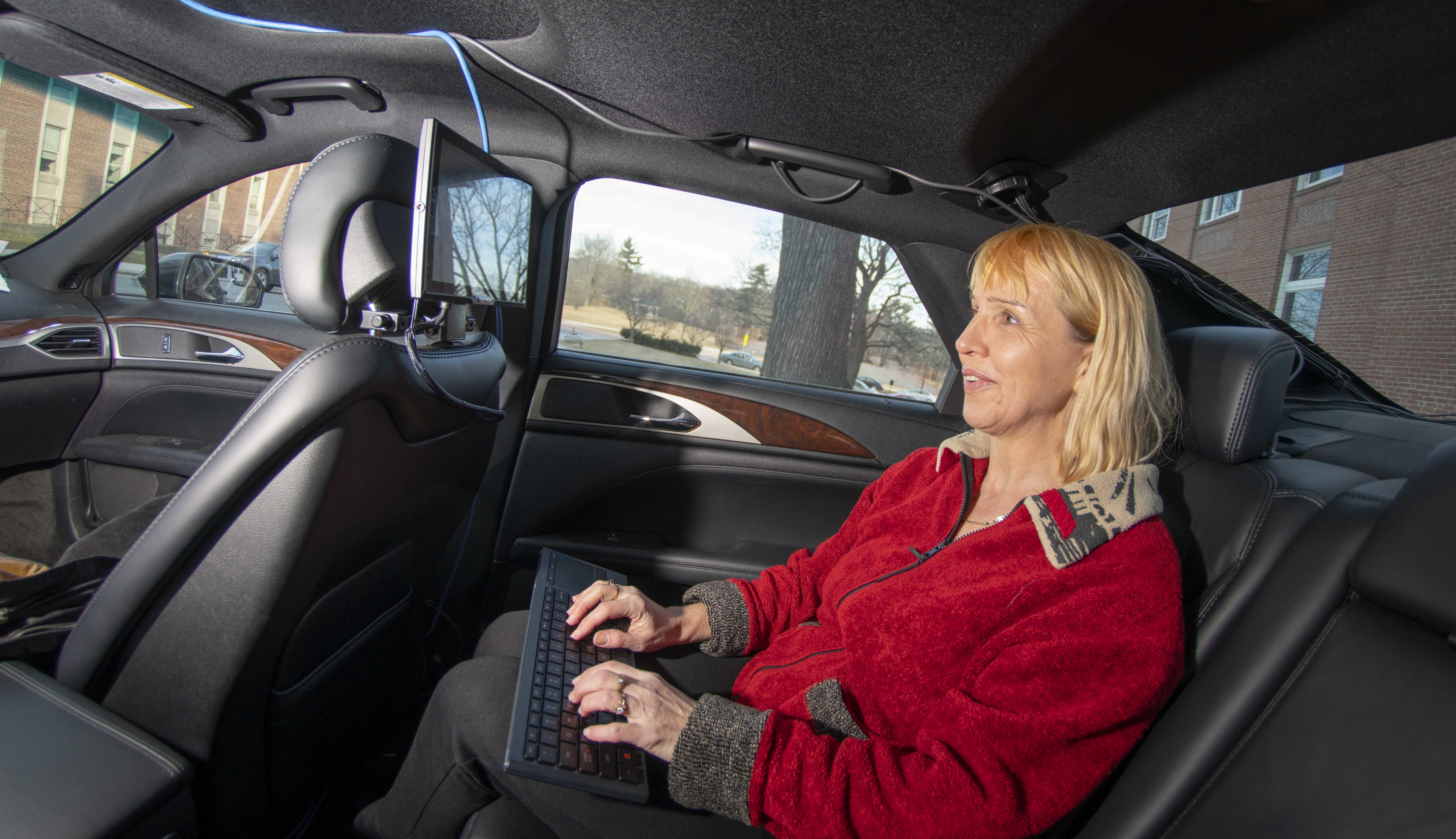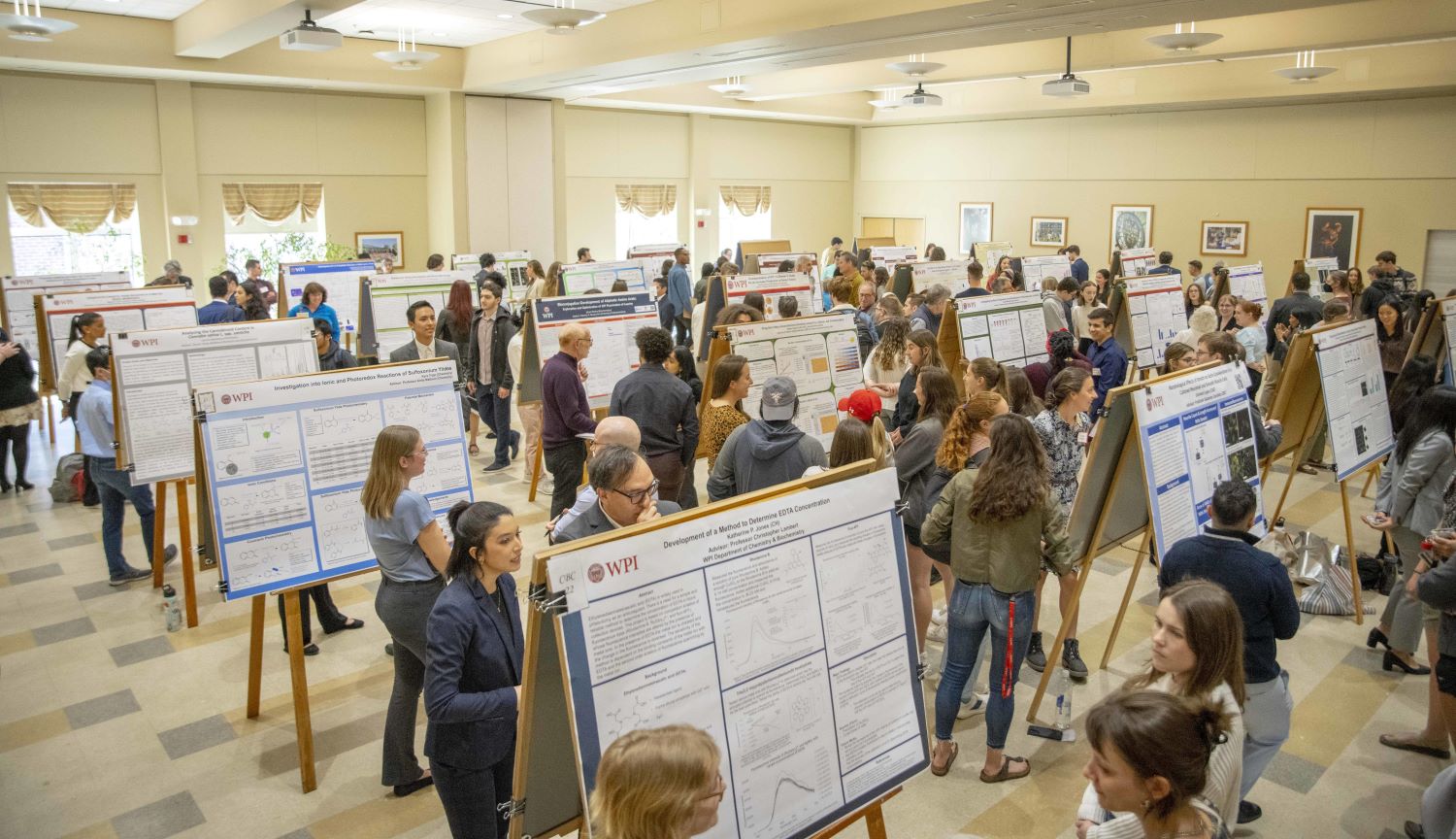Gobert Presents WPI-born Inq-ITS to DNC
• Former WPI professor Janice Gobert will showcase the educational technology she developed at WPI, Inq-ITS, to members of the Senate and House of Representatives during the Democratic National Convention (DNC) in Philadelphia.
Gobert is among five people in the education and workforce development group selected to share their innovative research-based technologies for learning by SMART (Strengthening the Mid-Atlantic Region for Tomorrow), a bi-partisan group that that advocates the importance of science and technology to senior government officials.

“We will discuss the need for systems like ours to support both teachers’ assessment and instruction practices, as well as students’ learning as the Next Generation Science Standards, now adopted by 17 states and the District of Columbia, are rolled out,” says Gobert.
Currently a professor at Rutgers University Graduate School of Education, Gobert was the co-director of the Learning Sciences and Technologies graduate program at WPI (2005–2015). In 2012, she and two of her WPI graduate students, Michael Sao Pedro and Cameron Betts, started Apprendis, LLC, a spin-off of The Office of Intellectual Property & Innovation (IPI) at WPI. The company develops digital materials for performance assessment of skills in science, including the Inq-ITS (Inquiry Intelligent Tutoring System).
WPI owns the intellectual property and licenses it to Apprendis, says Gobert, adding, “WPI has been incredibly supportive.”
"Think of it as Amazon.com on steroids." – Janice Gobert
Appendis’s Inq-ITS is a virtual learning and assessment system for middle school science, developed using proprietary, educational data mined algorithms. Acting as a virtual lab, the software engages students in scientific inquiry and allows for real-time guidance for the student as well as real-time assessment for the teacher.
Gobert explains that when you teach science by rote and evaluate with multiple-choice tests, as has been the practice in the past, the results can yield false positives (students who know the science but are not good at articulating what they know in words) and false negatives (students who are good at parroting what they’ve heard or read but do not have a deep understanding). Teachers end up teaching to the test or teach what they can assess with students learning “low-level factoids rather than the key practices of science.”
NECN will air a story on Appendis’s Inq-ITS on Friday evening during its 6:30 and 8:30 news segments
“Science inquiry is not like learning geography, where you’re memorizing facts such as state capitals. How you form a hypothesis, collect data for that a hypotheses, analyze data, warrant claims with data, and develop explanations—these skills, now called practices of science, are critical to scientific literacy.” You need to use an assessment tool that shows students how students are doing at these practices so the false negatives and false positives are identified and can be helped in real time; this is particularly important because of the decisions (like college entry) that are being made on the basis of similar tests and school grades.
With Inq-ITS, students conduct inquiry, make hypotheses, collect their own data, analyze their data, and communicate their findings. The software evaluates students’ work in real time, giving them feedback to support the aspects of inquiry on which they are having difficulties. If they get stuck, the system detects that and sends “Rex,” a cartoon dinosaur, to give them on-the-spot tutoring.
“Think of it as Amazon.com on steroids,” says Gobert. In the way the shopping website makes suggestions based on what you’ve bought or searched for, Inq-ITS responds to students’ choices and responses. “It’s logging everything they do, every choice they make, and using data-mined algorithms for which Gobert and her co-inventors recently received a patent, the system assess students practices aligned to NGSS,” she says.

The NGSS standards set the expectations for what students should know and be able to do, according to the organization’s website. The NGSS were developed by states to improve science education for all students. A goal for developing the NGSS was to create a set of research-based, up-to-date K–12 science standards. These standards give local educators the flexibility to design classroom learning experiences that stimulate students’ interests in science and prepares them for college, careers, and citizenship.
In addition to the 17 states plus the District of Columbia that have adopted the NGSS, more than 40 are using standards inspired by or adapted from NGSS, says Gobert.
But these standards are difficult to evaluate using traditional rote-learning assessments, she says. She uses the analogy of a surgeon performing an operation. Traditional science learning assessment would be the equivalent of giving the surgeon a test on parts of the human body, tools, procedures, etc. By contrast, “What we are doing is the analog of watching the surgeon do the surgery and tracking everything they do,” to see how well they perform at the various aspects of surgery: the cutting, the stitches, etc., she says.
The other challenge in assessing students this way is for the teacher to be able to step in and help when needed. While the kids “show what they know,” Inq-ITS companion software, Inq-Blotter, sends real-time alerts to educators, enabling them to pinpoint which students need help most, and on what skills.
Without these types of technology, you have “teachers running around a classroom while kids are doing hands-on experiments, trying to assess their performance,” Gobert says “or reading lab reports, written after the experiment has been conducted, when it is too late to remediate student difficulties in real time and; and the report can only be a good proxy for what the student knows if the student is skilled at writing—a different skill set from science inquiry.”
With many states holding teachers responsible for education outcomes--at the risk of losing their jobs--it’s imperative that classroom educators have rigorous assessment tools to help them evaluate their students’ learning to keep them on track and inform classroom instruction, says Gobert, and the “time is now because technological approaches like Inq-ITS and Inq-Blotter can greatly help teachers implement and assess NGSS practices and help students learn these practices. For more information on Inq-ITS, visit https://www.inqits.com.
For more information on WPI’s Office of Intellectual Property & Innovation, visit https://www.wpi.edu/offices/technology-commercialization.
- By Cate Prato



